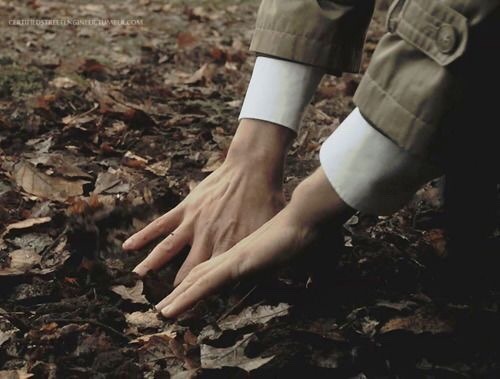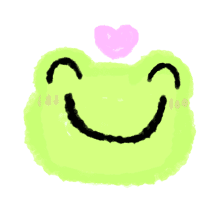Loneliness





Loneliness
More Posts from Alittleanxiousbadger and Others
Magick of the Moon Phases

New Moon
A time for:
New ventures
New beginnings
Love and romance
Health
Job hunting
Fresh starts
New projects
Personal Growth
Waxing Moon
A time for:
Constructive Magick
Love
Wealth
Success
Courage
Friendship
Luck
Health/Healing
Growth
Protection
Prosperity
Attraction
Any type of positive magick
Financial Growth
Full Moon
A time for:
All magick (Enhances all types of magick)
Love
Knowledge
Legal undertakings
Money
Dreams
Protection
Fixing any situations that need it
Divination
Cleansing and charging crystals and tools
Psychic awarness
Family and Friends
Waning Moon
A time for:
Banishing magick
Bindings
Removing addictions
Clearing negativity from your life
Getting rid of illnesses and sicknesses
Harvests
Exorcism
Cleansing
Getting rid of bad habits
Dark Moon - Black Moon
Some practitioners believe this is a time to take a break from casting, others believe this is a powerful time to cast spells.
A time for:
Removal of bad habits
Binding spells
Bringing things to justice
Banishing
Dreaming/Prophecies
Crescent Moon
A time for:
Intention
Hopes
Wishes
First Quarter
A time for:
Challenges
Decisions
Taking action
Gibbous Moon
A time for:
Adjustments
Refinements
May the Moon Light your path!
Moonlight Academy
GOOD STUDYING VS BAD STUDYING
GOOD STUDYING
Use recall. When you look at a passage and try to study it, look away and recall the main ideas. Try recalling concepts when you are walking to class or in a different room from where you originally learned it. An ability to recall—to generate the ideas from inside yourself—is one of the key indicators of good learning.
Test yourself. On everything. All the time. Flashcards are your best friend. Use quizlet if you don’t want to hand-make flashcards. Get somebody to test you on your notes.
Space your repetition. Spread out your learning in any subject a little every day, just like an athlete. Don’t sit and study one subject for 2 hours, do half an hour every day.
Take breaks. It is common to be unable to solve problems or figure out concepts in math or science the first time you encounter them. This is why a little study every day is much better than a lot of studying all at once. When you get frustrated, take a break so that another part of your mind can take over and work in the background. You need breaks in order for your brain to retain the information. Try the Pomodoro method if you have trouble timing breaks!
Use simple analogies. Whenever you are struggling with a concept, think to yourself, How can I explain this so that a ten-year-old could understand it? Using an analogy really helps. Say it out loud, like you’re teaching it, whether it’s to an imaginary class or your sister who couldn’t care less. The additional effort of teaching out loud allows you to more deeply encode.
Focus. Turn off your phone / iPad / any distractions and clear your desk of everything you do not need. Use apps like Forest if you can’t stay off them!
Do the hardest thing earliest in the day, when you’re wide awake and less likely to push it aside.
BAD STUDYING
Avoid these techniques—they can waste your time even while they fool you into thinking you’re learning!
Passive rereading—sitting passively and running your eyes back over a page. This is a waste of time, frankly, and doesn’t do anything to help information pass into your brain without recall.
Over-highlighting. Colouring a passage of text in highlighter isn’t helpful at all. It’s good for flagging up key points to trigger concepts and information, but make sure what you highlight goes in.
Waiting until the last minute to study. DON’T CRAM!!!
Doing what you know. This isn’t studying! This is like learning how to juggle but only throwing one ball.
Neglecting the textbook. Would you dive into a pool before you knew how to swim? The textbook is your swimming instructor—it guides you toward the answers.
Not asking your teachers for help. They are used to lost students coming in for guidance—it’s their job to help you.
Not getting enough sleep. Your brain practices and repeats whatever you put in mind before you go to sleep, as well as retaining information and repairing itself. Prolonged fatigue allows toxins to build up in the brain that disrupts the neural connections you need to think quickly and well.






some of my fav retro computers!!! i would love to doodle some more later on!! it was really hard to choose only six ahaha (click for captions!)
Getting To Know Plant Allies

photo source
Use It!
One of my teachers was very insistent that before I was allowed to study a plant, I had to get to know it first. Head knowledge is one thing, but when you are working as a herbalist you have to have more than that.
Before using any herb, even for these exercises it is important to look up contraindications for the herb. Herbs are medicinal, even in small doses. Personally I like to use this book. And remember to always tell your doctor if you are taking any herbs!
Based on the type of herb, make a decoction or infusion. Fragile herbs, usually dried leaves or flowers, are better suited to an infusion (let steep in nearly boiling water for 20 minutes). Hardier herbs such as roots can be simmered in the water for 20 minutes (decoction).
Sip slowly, taking notice of how the tea feels in your mouth. Does it trigger a salivary response? How does it taste? Anything your experience is worth taking note of. I’ve never been sad I took too many notes!
Take a bath with it. If a full bath isn’t possible, do a foot or hand bath. I was taught to start with water as close to room temp as possible. This can be a good way to determine if the herb has warming or cooling properties.
Again, make notes! Lots of them.
Get creative with how you experiment. Cook with them, use them for facial steams. Any way that you’re called to, and remember, take notes!
Study It - Materia Medica
It’s time to make your own herbal! We’re going to take our observations and start a Materia Medica. This is the term herbalists have been using since the 1st century AD, thanks to the Ancient Greek physician Pedanius Dioscorides. Modern science now often uses the term pharmacology but I greatly prefer the Materia Medica.
Some witches will combine this with a Materia Magica which goes into the magical correspondences for the herbs. But this post won’t be covering that.
How each herbalist organizes the Materia Medica is going to vary, but it should hit a few key points. And, of great importance, is to track your sources! Any information that you include in your MM needs to have a citation so that you can track your info.
Latin Name
My Materia Medicas always start with the Latin name for the herb. Herbs have many, many different names. Both through history and throughout the world. The best way to ensure that you’re using the correct plant is to use the latin name. But then, after that, I make not of common names and historical names.
History/Lore
If a herb has an interesting history, or appears in folk lore I make note of that next. It can be interesting and is helpful for knowing the herb. There’s a lot of knowledge to be gleaned from old stories!
Description
If you’re inclined for either wildcrafting or foraging, a section on the cultivation and appearance of the plant.
Chemicals
Now, we get into the medicine of it. Herbs work because they contain chemical compounds. A lot (all?) of modern medicine is derived from the manufacturing of these chemicals.
Make a list of the chemicals that are found in the herb. Making note, where you can, of what these chemicals actually DO. Over time you’ll want to get to know which ones are the active ingredients and how the work. Yup, it’s science!
Herbal Actions
Actions come next. Herbal actions are a whole language to learn. But as you are putting together the Materia Medicas you’ll start to get the hang of things! An action describes the way a herb works on the body.
It can seem a bit overwhelming, so here is an example.
Bitter is an herbal action, and it is aptly named. Herbs with this action typically taste… bitter! The action that they have on the body usually starts in the mouth where it stimulates saliva production as the first step of aiding in the digestive process. (they do a lot more but we’re keeping it simple for the example).
Examples of bitters are: arugula (also called rocket), dandelion greens, and black coffee.
Here’s a very simple way to experiment yourself! Take some time to sample one of the above mentioned bitters and see how your body reacts.
Christopher Hobbs is an herbalist I respect a lot. He has a handout that he uses in his classes which lists herbal actions, indications (we’ll get into that next), and lists example herbs.
http://www.christopherhobbs.com/webdocs/class-handouts/keville-hobbs-2016/Herbal-Actions.pdf
I highly suggest printing this sheet out and keeping it handy, reading it over often. Eventually it’ll become more intuitive, but it takes time and practice.
Indications
Indications are where we want to use the herb. IE: where is the herbal action of the herb indicated? This is going to be a list of conditions that the herb in question is good for treating.
For example, Corn Silk (zea mays) is an antiseptic, demulcent and a diuretic. Because of this, it’s indicated for use with a urinary tract infection. (it’s indicated for other things too, but I’m trying to keep things fairly basic!)
The demulcent soothes the irritated skin, the diuretic helps to increase urine output, and the antiseptic of course helps to prevent the growth of harmful organisms.
Medicine
The last section of my Materia Medica deals with dosing and contraindications.
I like to include dosing for both teas and tinctures as they are my personal favorite ways for treating people.
Contraindications means anything that counteracts with the herb. St John’s Wort is a popular one for this, as it has many. It is a highly reactive herb and can interact negatively with many drugs!
It is very important to know how the herb interacts. People think that because herbs are natural/plants that somehow this excludes them from the realm of medicine. But the very reason that herbs are effective is because they ARE medicine!
When I am working with a client, I do my best to take a detailed history, even things they don’t think is important. But I also inform them of every herb I am giving them and encourage them to do their own research. And it’s important to be aware of your body when you are taking herbs. From the practitioner to the person taking the herb, everyone needs to do their own due diligence.
If you found this post useful, or have any comments/thoughts/etc I would love to hear it. If there is interest I can do posts on salves, tinctures, etc. And perhaps examples of my own materia medicas.









Dark Academia Moodboard☂️.
My aesthetic is just a village homemaker with the dress sense of a depressed university student and an uncontrollable book addiction .
Getting Stuff Done: How to Deal With Lack of Motivation

“How can I stay disciplined?”
“How can I get things done if I don’t feel like doing them?”
“How can I overcome my lack of motivation?”
As a college student who has had their fair share of being absolutely unmotivated to do anything, I know it can be hard to get things done if you don’t feel like doing them. Luckily, there are some things you can do to become more motivated to finish your homework, write your paper, study for your exam, or whatever tasks you have on your plate.
Part 1: Increasing motivation
Break up your tasks
Just thinking about one huge task is going to intimidate you so much that you’d rather leave it till later, when the urgency of time pushes you to complete it, than start now.
Breaking up your big tasks into smaller ones will make your tasks seem less daunting. Since you won’t be as intimidated by the amount of effort it might take to complete these tasks, you’ll be more likely to start doing them.
For studying, this can be something like ‘make flashcards for units 1-3’ or ‘practice past exam papers: 2015 + 2016’. For writing papers, this could be writing an outline, doing research for each point of your outline, writing the first 3 paragraphs, etc.
Working on small tasks at a time will also make you less prone to distractions since you only need to focus for a short length of time.
Make small goals and reward yourself
These goals could be accomplishing one of the smaller subtasks above, or achieving a certain grade on a practice test, or finishing a section of your study plan - as long as you’re working towards something.
The rewards? Maybe going out to eat, watching something, or even just time off. Hopefully these rewards will motivate you to complete your task.
I know some people are more inclined to do their work if they’re punished for not doing it, rather than rewarded for doing it, so if you wanna take the ‘punishment’ approach, you could do something like not allowing yourself to use social media until you finish a set of tasks - this is essentially the same thing, just thought about in a different manner. However, you should always be careful with these punishments/restrictions, because sometimes they can end up harming your health and productivity (e.g. ‘I can’t take a break until I finish all of my homework’).
Part 2: Not relying on motivation
Of course, you can’t always expect yourself to be motivated all the time. In fact, it’s very ineffective to rely on motivation to get things done; motivation is fleeting. Here’s an alternative: self-discipline. But how does it work?
Establish a study routine
Humans are creatures of habit. Even if you’re a P-type (like me), habits are hard to break. So making a habit of accomplishing your tasks/studying at a set time every day will help you, well, accomplish them. For example, it’s a lot easier to get your homework done every day if you do it at the same time - e.g. once you come home from school - rather than doing it ‘whenever you have time’.
Having a study routine will also make you less likely to be distracted since you know that that period of time had a purpose. If you’re trying this out for the first time, you might wanna completely get rid of distractions so that you can focus (e.g. putting your phone in your bag, on silent). However, with practice, I found that my phone or any other sources of distraction don’t really bother me anymore since I’ve had tons of practice resisting the urge to pick up my phone whenever there’s a notification, for example.
Schedule in time for breaks
This ties in well with the point about rewards: the break might be the reward for your studying. However, this doesn’t always have to be the case. You shouldn’t always think of relaxing as merely a reward for studying or accomplishing your tasks, but rather a necessity for the well-being of your mind. This sort of approach to breaks ensures that you actually let your brain rest once in a while.
After taking a break, your mind will be refreshed and revitalized, and you should have more than enough energy to continue with your other tasks.
Some of you asked - with regards to my previous post on The Mandatory Midday Break - how I can limit myself to exactly an hour, and to be honest, the answer is habit. It’s like having a habit of showering at the same time every day and not extend the length of time you spend in the bathroom (except in certain circumstances, like during a day off, I guess).
This is why it’s important to schedule your breaks and establish a study routine or habit - not only does it ensure you get enough rest, but it also prevents you from extending your break so that you don’t become unproductive and leave a ton of tasks unfinished.
It can be hard to motivate yourself to accomplish all your tasks, but there are things you can do to increase your motivation. However, you can’t expect to be motivated all the time, and you shouldn’t rely on motivation to get things done. Discipline and habit are the most important tools you can use to be efficient and productive without having to be motivated.
Hope this post has been helpful, and, as always, feel free to drop me an ask if you have an ask. Have an awesome week :)
reblog for a perfect second semester
the universe knows you will learn from your first semester mistakes
second semester is when we all get 4.0s
we got this.
reblog to help a friend
me: trying to do schoolwork
my brain: oofjan stevens



by Riiiiiii
-
 lechateulier liked this · 10 months ago
lechateulier liked this · 10 months ago -
 chengxd liked this · 1 year ago
chengxd liked this · 1 year ago -
 zamii070receipts liked this · 1 year ago
zamii070receipts liked this · 1 year ago -
 pingtopong liked this · 1 year ago
pingtopong liked this · 1 year ago -
 sereppu liked this · 2 years ago
sereppu liked this · 2 years ago -
 broadminded liked this · 2 years ago
broadminded liked this · 2 years ago -
 chloedork30 liked this · 2 years ago
chloedork30 liked this · 2 years ago -
 wastelaand liked this · 2 years ago
wastelaand liked this · 2 years ago -
 witchysolfan liked this · 2 years ago
witchysolfan liked this · 2 years ago -
 lpvesck liked this · 3 years ago
lpvesck liked this · 3 years ago -
 willow-trees-are-beautiful liked this · 3 years ago
willow-trees-are-beautiful liked this · 3 years ago -
 smallkisu reblogged this · 3 years ago
smallkisu reblogged this · 3 years ago -
 smallkisu liked this · 3 years ago
smallkisu liked this · 3 years ago -
 venombomb reblogged this · 3 years ago
venombomb reblogged this · 3 years ago -
 venombomb liked this · 3 years ago
venombomb liked this · 3 years ago -
 depressedtransguy liked this · 3 years ago
depressedtransguy liked this · 3 years ago -
 dragonindigo245 reblogged this · 3 years ago
dragonindigo245 reblogged this · 3 years ago -
 dragonindigo245 liked this · 3 years ago
dragonindigo245 liked this · 3 years ago -
 aeternum-ablaze reblogged this · 3 years ago
aeternum-ablaze reblogged this · 3 years ago -
 cherub-hotline liked this · 3 years ago
cherub-hotline liked this · 3 years ago -
 life-is-a-lemonsade liked this · 3 years ago
life-is-a-lemonsade liked this · 3 years ago -
 cat-vomit liked this · 3 years ago
cat-vomit liked this · 3 years ago -
 miauwing reblogged this · 3 years ago
miauwing reblogged this · 3 years ago -
 miauwing liked this · 3 years ago
miauwing liked this · 3 years ago -
 violet-roll liked this · 3 years ago
violet-roll liked this · 3 years ago -
 lauritakamaki liked this · 3 years ago
lauritakamaki liked this · 3 years ago -
 seizure-warning222 reblogged this · 3 years ago
seizure-warning222 reblogged this · 3 years ago -
 bratwurst liked this · 3 years ago
bratwurst liked this · 3 years ago -
 meiatroll reblogged this · 3 years ago
meiatroll reblogged this · 3 years ago -
 meiatroll liked this · 3 years ago
meiatroll liked this · 3 years ago -
 honeymilkss liked this · 3 years ago
honeymilkss liked this · 3 years ago -
 binbagworm liked this · 3 years ago
binbagworm liked this · 3 years ago -
 candyorsomething liked this · 3 years ago
candyorsomething liked this · 3 years ago -
 argeraakigeminuga-palun liked this · 3 years ago
argeraakigeminuga-palun liked this · 3 years ago -
 kingtraaash reblogged this · 3 years ago
kingtraaash reblogged this · 3 years ago

170 posts